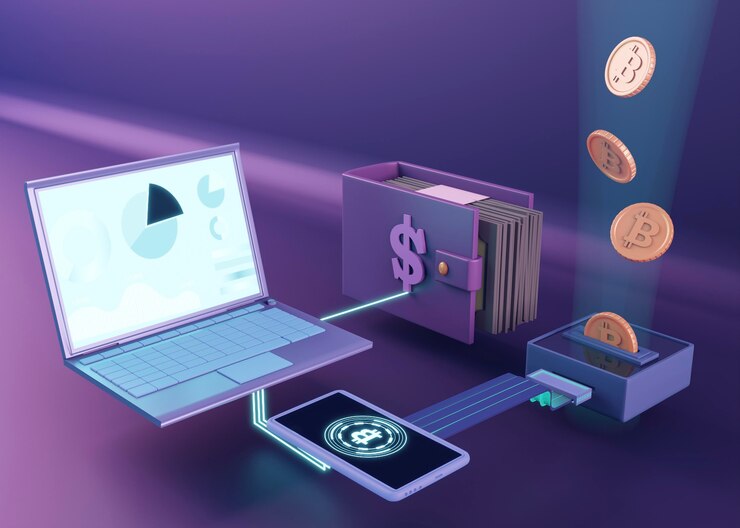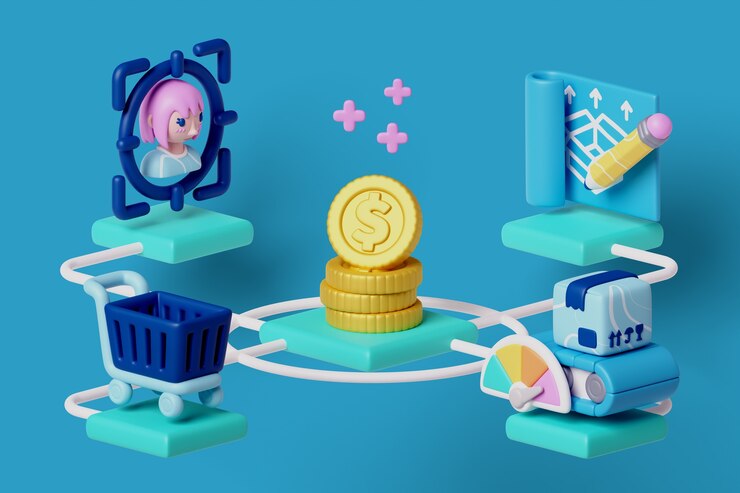“NFTs: Beyond Digital Art – Exploring the Diverse Applications of Non-Fungible Tokens “
Non-fungible tokens (NFTs) have captured the world’s imagination primarily through their association with digital art and collectibles. However, the potential applications of NFTs extend far beyond the realm of aesthetics. This article delves into the diverse range of industries and sectors where NFTs are making a significant impact.
Understanding NFTs
Before exploring the diverse applications of NFTs, it’s essential to grasp their fundamental characteristics. NFTs are unique digital assets built on blockchain technology. Unlike cryptocurrencies like Bitcoin or Ethereum, which are fungible (interchangeable), each NFT is distinct and cannot be replaced with another. This uniqueness makes NFTs ideal for representing ownership of digital or real-world assets.
NFTs in Gaming
The gaming industry has embraced NFTs with open arms.
- In-game Assets: NFTs are revolutionizing the ownership of in-game items, allowing players to truly own and trade virtual assets like characters, weapons, and skins.
- Virtual Worlds and Real Estate: NFTs can represent ownership of virtual land and real estate within virtual worlds, creating digital economies and investment opportunities.
- Play-to-Earn Models: NFTs are integral to play-to-earn games, where players can earn cryptocurrency by completing tasks or achieving milestones.
NFTs in the Art and Collectibles World
While NFTs initially gained prominence in the art world, their applications extend to various collectibles:
- Digital Art: NFTs enable artists to tokenize their digital creations, ensuring provenance and enabling direct sales to collectors.
- Physical Collectibles: NFTs can represent ownership of physical collectibles like trading cards, sports memorabilia, or luxury items, providing verifiable authenticity and enabling fractional ownership.
- Virtual Fashion: NFTs are used to create unique digital fashion items that can be worn by avatars in virtual worlds.
NFTs in Music and Entertainment
The music and entertainment industries are exploring the potential of NFTs:
- Music Ownership: Musicians can tokenize their music, allowing fans to own unique digital albums or tracks.
- Concert Tickets: NFT-based concert tickets offer enhanced security, prevent counterfeiting, and can include exclusive perks for holders.
- Virtual Experiences: NFTs can provide access to virtual concerts, meet-and-greets, or other exclusive experiences.
NFTs in Real Estate and Finance
The application of NFTs extends to real-world assets:
- Real Estate Tokenization: NFTs can represent fractional ownership of real estate properties, improving liquidity and accessibility.
- Securities Tokenization: NFTs can tokenize stocks, bonds, and other financial instruments, streamlining trading and settlement processes.
- Supply Chain Management: NFTs can track the provenance of goods, ensuring authenticity and transparency.
NFTs in Identity and Verification
NFTs have the potential to revolutionize identity management:
- Digital Identities: NFTs can serve as unique digital identities, storing personal information securely and providing verifiable ownership.
- Diplomas and Certificates: NFTs can be used to verify the authenticity of educational credentials and certifications.
- Voting Systems: NFTs could potentially be used to create secure and transparent voting systems.
Challenges and Considerations
While NFTs offer numerous benefits, they also face challenges:
- Scalability: Blockchain limitations can hinder the widespread adoption of NFTs, especially for high-volume applications.
- Environmental Impact: The energy consumption associated with some blockchains raises concerns about the environmental impact of NFTs.
- Regulatory Uncertainty: The lack of clear regulations in many jurisdictions creates uncertainty for both creators and investors.
- Security Risks: NFTs are susceptible to cyberattacks and fraudulent activities.
The Future of NFTs
The future of NFTs is brimming with possibilities. As the technology matures and regulatory frameworks evolve, we can expect to see even more innovative applications emerge. Key trends to watch include:
- Interoperability: Connecting different blockchain platforms to facilitate the seamless transfer of NFTs.
- Real-World Utility: Increasing the utility of NFTs beyond digital ownership.
- Sustainability: Developing more environmentally friendly NFT platforms.
- Regulatory Clarity: Establishing clear and comprehensive regulations to foster innovation and investor protection.
Conclusion
NFTs have transcended their origins as digital art collectibles to become a versatile tool with applications across various industries. From gaming and entertainment to real estate and finance, NFTs are reshaping the way we think about ownership, value, and authenticity. As the technology continues to evolve and mature, the full potential of NFTs is yet to be realized.







